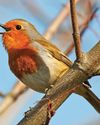
In the last few decades, engineers have developed machines that can do all manner of incredible tasks, from assembling cars, to tunnelling deep underground and exploring space. At the same time, the computer programs built to control these machines have undergone an even greater revolution. They have gone from simply carrying out a list of instructions to thinking for themselves. However, will machines ever get to what people would consider “real” intelligence?
An imitation brain
Artificial intelligence (AI) programs take in information, search for patterns in that data, and take actions based on it. If this sounds like what you do when you learn, that is no mistake. For the last 50 years, a key goal of AI research has been to make a computer program think just like humans do.
Michael Wooldridge, professor of computer science at the University of Oxford, is presenting this year’s Christmas Lectures at The Royal Institution (see panel). He told The Week Junior Science+Nature, “Different types of AI have been around for many years now, but the speed with which AI has developed has increased enormously in the last 10 years, and even more so in just the last year, with the development of Chat GPT (an advanced chatbot). The main reason this has happened is the power of modern computers.”
Not quite human
This story is from the Issue 69 edition of The Week Junior Science+Nature UK.
Start your 7-day Magzter GOLD free trial to access thousands of curated premium stories, and 8,500+ magazines and newspapers.
Already a subscriber ? Sign In
This story is from the Issue 69 edition of The Week Junior Science+Nature UK.
Start your 7-day Magzter GOLD free trial to access thousands of curated premium stories, and 8,500+ magazines and newspapers.
Already a subscriber? Sign In

SUGAR RUSH
Join the candy craze as Claire Karwowski studies the sugary science of sweets.

Wildlife watch
Stevie Derrick shows you what to spot in nature this month

The Sixth Sense
Could humans have more than five senses?

Catherine Heymans
Meet the starry-eyed astronomer who loves backyard stargazing.

WORLD OF WHIFFS
Stevie Derrick follows her nose to track down the world's grossest stinks and nastiest niffs.

Dogs can understand names of objects
Humans enjoy talking to their dogs. If you have a four-legged friend of your own, you might have taught them to respond to commands like \"sit\" and \"stay\".

Smoke rings in the sky
In April, videos were filmed of Mount Etna, a volcano on the Italian island of Sicily, puffing what looked like smoke rings into the sky.

Huge gold nugget found
A gold nugget that could be the largest ever found in England was recently put up for auction. Metal detectorist Richard Brock discovered the nugget on farmland during an organised expedition in Shropshire last year.

Evolutionary tree shows birds in a new light
Researchers have produced the most detailed evolutionary tree of birds ever.

The largest plane to ever fly
Take a first look at the mighty Radia WindRunner aircraft